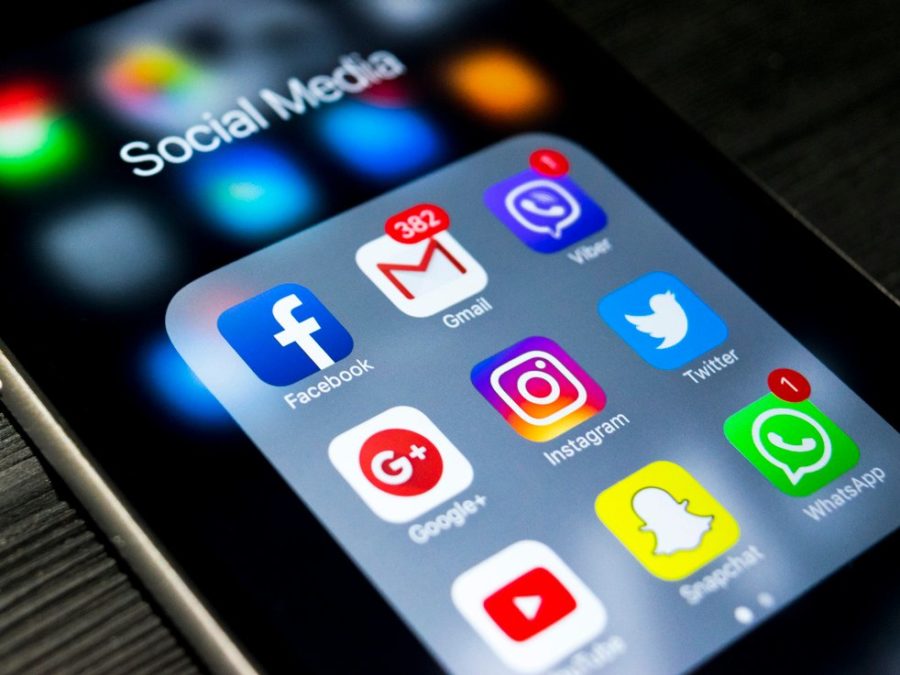Column: Social Media’s Harmful Effects
May 13, 2019
The growth of technology in our society has given rise to many new platforms of social media. Instant gratification is at the touch of our fingertips. According to The Washington Post, “Teens spend nearly nine hours every day consuming media.” Social media dominates teens’ schedules.
Social media is causing our society more harm than good.
It can be argued that the most considerable positive that comes from social media is its use as a communication tool for people to stay connected with friends and family. Statista, in partner with over 22,500 trusted partners, estimates: the number of worldwide social media users reached 2.34 billion and is expected to grow to some 2.95 billion by 2020. This high use rate lets family and friends stay in touch around the world, sharing baby photos or a selfie.
Even with this important benefit of social media, overall it is generating more damage to teenagers who are losing sleep because of it. Social media can interrupt sleep by causing young adults to worry about what they are missing out on or if they are falling behind in the feed, causing their brains to not truly rest. Another reason is the blue light from the screen is waking up their brains when they are trying to fall asleep, which will delay their sleep by 30 minutes according to NBC News — America’s number one network.
On top of social media affecting our physical health, it can also cause mental illness. Social media is glorifying people’s lives and many will compare themselves to what they see. From the Bphope blog shares, social media will cause lower self esteem, especially in teenage girls. This comparison will also lead to social isolation from a fear of missing out, commonly known as “FOMO.” Our constant use of social media now brings out the fear of not being invited to a party that is posted on Instagram.
Clearly, social media like an addiction. It correlates with an increase in feelings of social isolation, social anxiety and depression. NBC News corroborates this with an alarming statistic that shows that “the rate of young adults with suicidal thoughts or other suicide-related outcomes increased a staggering 47 percent from 2008 to 2017.”
To reduce all of these harmful effects: sleep loss, anxiety, depression, low self esteem, social isolation, and stress, users of social media need to cut down on time spent on social media. A new setting on iPhones allows users to set a certain amount of time allowed on certain apps or phone, making cutting down easier than ever before. To get a better night’s sleep, try not to go on theph one before bed, and try reading a book or practicing mindfulness instead.


